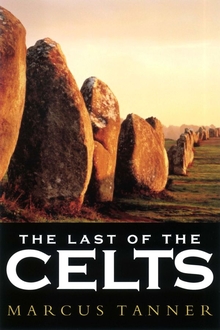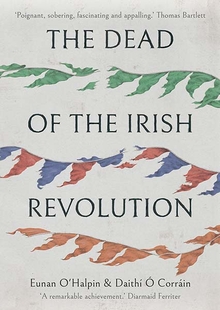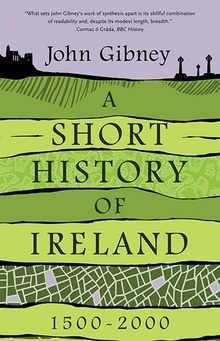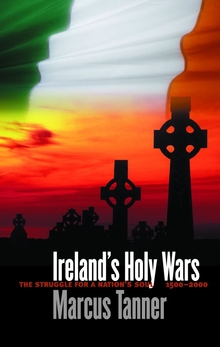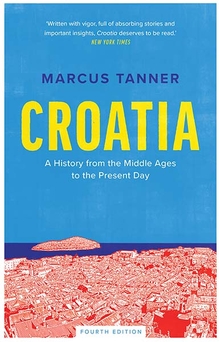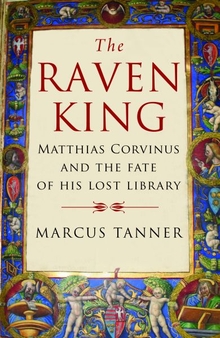The Last of the Celts
WARNING
You are viewing an older version of the Yalebooks website. Please visit out new website with more updated information and a better user experience: https://www.yalebooks.com
Marcus Tanner
Out of Print
What has become of the Celtic peoples whose culture once spanned Europe from the Atlantic to the Black Sea? Does the current faddish interest in Celtic nationalism, music, and arts signal the beginning of a revival for Celtic communities, or the last flicker of a dying culture? Award-winning author Marcus Tanner has journeyed throughout the Celtic world—from the wilds of Northwest Scotland to the Isle of Man, from Brittany to Patagonia, and from Boston to Cape Breton—seeking to discover the Celtic past and what remains of authentic Celtic culture today.
Weaving together extensive historical research with first-hand observations of Celtic people in far-flung communities, Tanner finds that talk of a Celtic revival is largely misplaced. He describes the fading prospects of those who have maintained a Celtic identity in the face of powerful pressures to assimilate. Despite great public interest in all things “Celtic,” the threats to the world’s remaining Celtic communities, their language, and their culture are relentless. A distinct Celtic identity may not survive, Tanner fears, and such a loss would impoverish us all.
Marcus Tanner is a freelance writer and journalist.
“[A] lively and thought-provoking exploration of [the Celtic languages] status today.”—Michael Kenney, Boston Globe
“An exceptional journey into the remarkable cultural history of the Celtic people. . . . His experience reads like a travelogue and an insightful history with an emphasis on cultural heritage.”—Raymond L. Flynn, Boston Sunday Herald
“[A] comprehensive and consistently interesting book. Clearly written for general audiences, Tanner’s [book] is energetic and fast-paced. He combines first-hand observation with a synthesis of extensive historical research to examine the past and present of Celtic communities in Ireland, Scotland, Wales, Cornwall, and Brittany, as well as the Celtic diaspora in Cape Breton and Patagonia.”—Choice
“At its center this is a book about the importance of language and about what is lost when a language dies. . . . In the very passion, eloquence and determination with which Tanner pursues his own quest, we can glimpse some of the appeal of the language and culture he honors in The Last of the Celts.”—Loren Wilkinson, Christian Century
“An excellent review of Celtic culture and social history.”—Family History Monthly
“In this lively book, which is part travelogue and part social history, independent historian Tanner records the results of his world travels in search of the remaining vestiges of Celtic culture. . . . He provides not only a portrait of modern society in flux in these regions but also a picture of each society’s rich history. . . . [A] thoughtful book.”—Publishers Weekly
“A stimulating thought provoking work.”—James Whetter, The Cornish Banner
“[A] fascinating, sobering look at the modern Celtic communities of Scotland, Ireland, Cornwall, Brittany Wales and Patagonia.”—Michael Kerrigan, The Scotsman
“This is a good, sad book which should be required reading in all schools of English History.”—Byron Rogers, The Spectator
“Marcus Tanner, searching for his Welsh ancestry, has had the excellent idea of a book which combines historical analysis with contemporary reportage. The Last of the Celts is a sure-footed general guide to what actually happened to the cultures of Wales and Scotland, Ireland and the Isle of Man, Brittany and Cornwall. . . . [An] excellent book.”—Hywel William, The Tablet
“This is a book well worth reading. . . . It is stimulating and thought-provoking, and raises large questions about homogenization and heterogeneity in the modern world.”—David A. Wilson, The Toronto Globe and Mail
“Tanner has concluded we must resign ourselves to the fact that Celticism is done, over, finis. He proves it in a very good and special book that every prodigal and true Celt should read and try to prove wrong.”—Malachy McCourt, Washington Post Book World
Publication Date: September 10, 2004
20 b/w illus.

